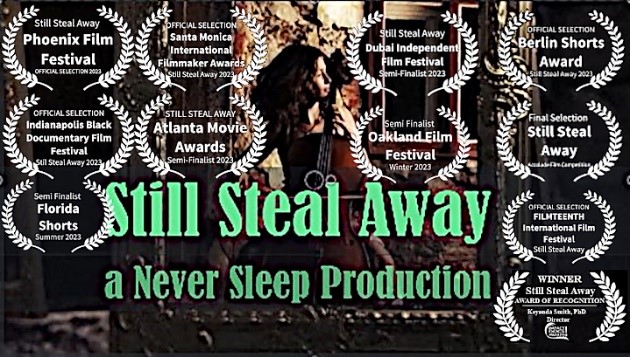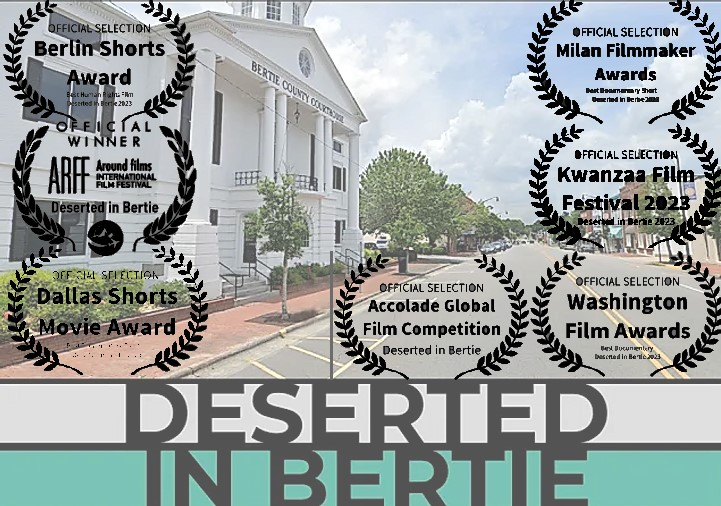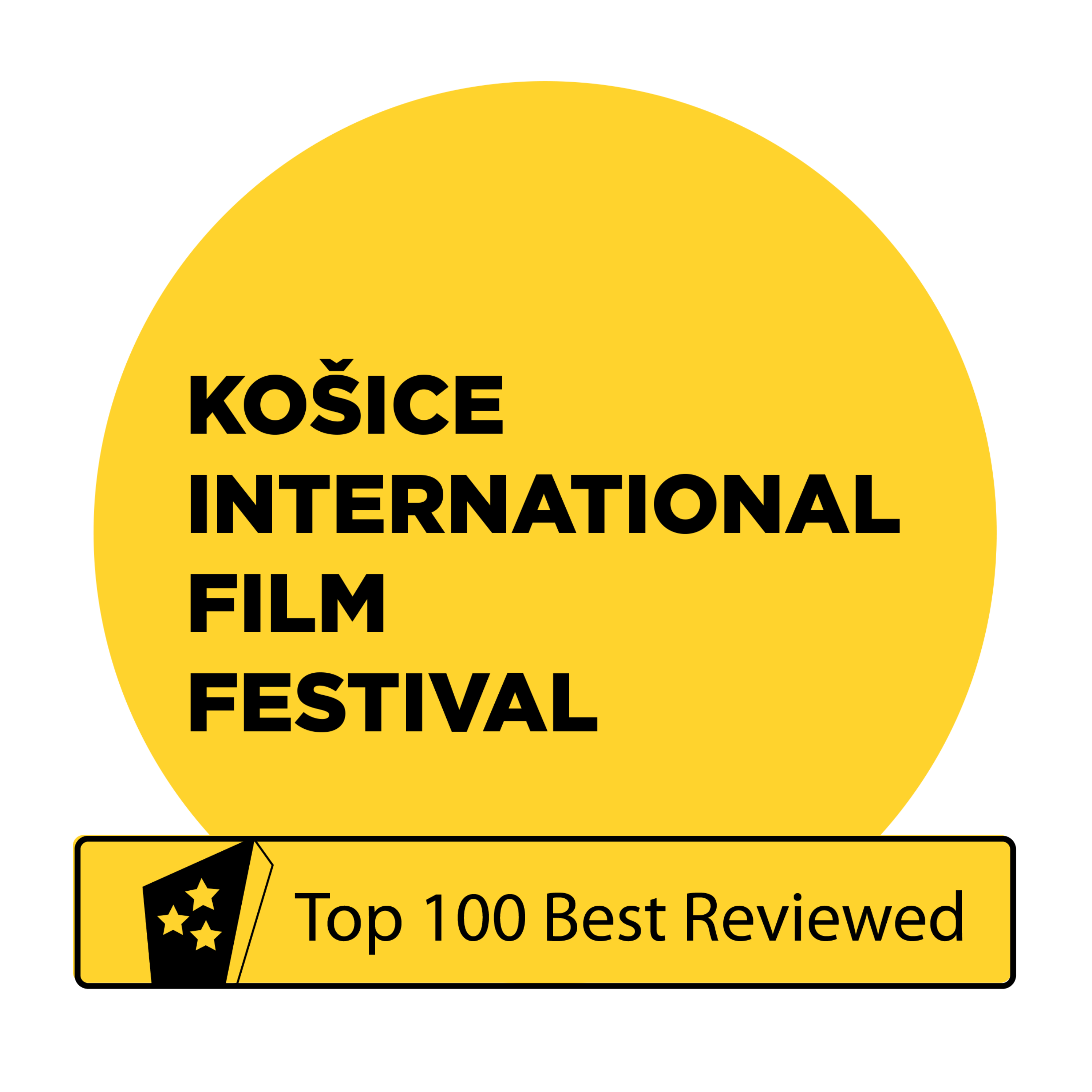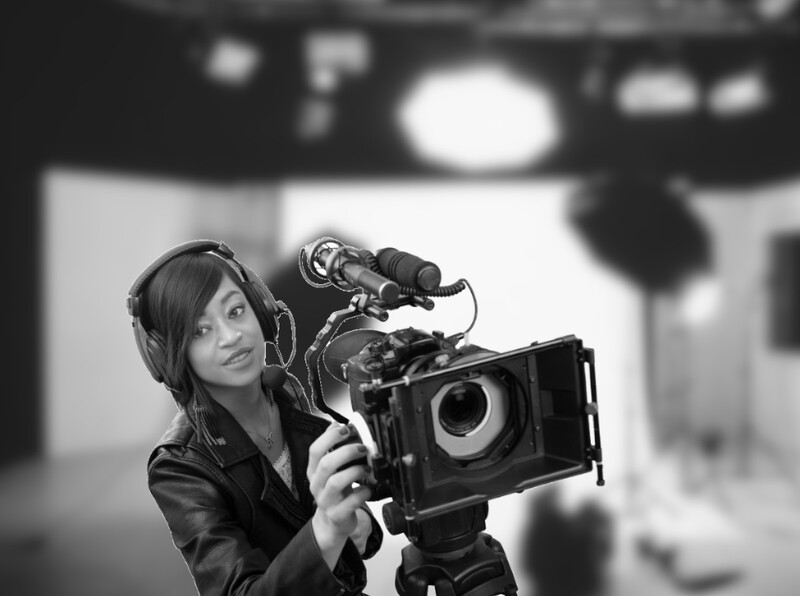Dr. Keyonda Smith
Her journey in the world of documentary filmmaking began during her research career, where she was exposed to data and statistics that impacted a small group of individuals and, therefore, was overlooked. As an accomplished researcher, she’s honing her filmmaking skills through a combination of hands-on experience, working on various documentary film projects, and collaborating with fellow filmmakers.
After completing her PhD, Dr. Smith started her career in academic research and accessibility. This early experience allowed her to gain valuable insights into the practical aspects of various subjects and the oversight of underrepresented populations.
Over the years, Dr. Smith's dedication and talent became evident as she worked her way up in the industry. She soon found herself directing short documentary films and gaining recognition at film festivals for her unique storytelling and visual style.
In 2022, she directed her first feature documentary film, "Still Steal Away," a thought-provoking expository documentary exploring the economic inequality of a small North Carolina town. The film received critical acclaim and established her as a promising director in the industry.

Dr. Smith's subsequent work continued to garner attention, with her following social justice documentary film "Deserted in Bertie" (2023) earning praise for compelling narratives and well-crafted storytelling. Her ability to elicit strong emotions and her skill in visual storytelling has already set her apart.
Dr. Keyonda Smith remains a prominent figure in the accessibility research field, known for her dedication to her craft and her passion for storytelling. Her work is characterized by its emotional depth, strong character development, and a commitment to spotlight underrepresented stories and voices. As a director, her films have left a lasting impact on audiences, sparking discussions and inspiring reflection on the human experience.

What is the story behind your film?
As a new resident of Bertie County, I moved here from the Washington, DC, area. In my previous area, everything was right at my fingertips. Even though I’m considered upwardly mobile, I reflected on how others in this area access quality nutrition, as I found myself driving 30 minutes to the closest grocery store. After much research, I realized that access to fresh and healthy food is limited or nonexistent. Bertie County residents often rely on unhealthy, processed foods due to the absence of grocery stores with affordable, nutritious options.
What should people take away, gain, realize after watching your film?
The goal is to inspire change by advocating for social justice in the realm of food access. I hope that Deserted in Bertie encourages viewers to take action, get involved in local food initiatives, and demand policy changes to eradicate food deserts.
For the better by building empathy. The film follows the lives of individuals and families struggling with food insecurity, highlighting their experiences, challenges, and hopes for a better future. Through these personal stories, the documentary connects with viewers emotionally.
Expository Style: In this style, I took on a more active role in presenting the documentary. I used voice-over narration, interviews, and authoritative explanations to guide the viewer through the subject matter. It's a more informative and structured style, often used in educational or investigative documentaries. The cameraman's actions included a Steadicam rig to stabilize the camera while allowing for smooth and fluid movements. It was also helpful in tracking shots or following subjects through various environments. I also used zooming to bring distant subjects closer or create a sense of depth in the frame.

How did you select the
actors for your project?
I selected the suitable
subjects for this documentary film by combining thorough research, careful
consideration, and alignment with the documentary's overarching goals and
message. I also remained open to exploration and adaptation throughout
filmmaking, as the subjects and their stories can sometimes take unexpected and
compelling turns.
Why do you think your
film should appeal to distributors?
Deserted
in Bertie was created with the intent to raise awareness about a specific
issue. Distributors typically support such films to further their advocacy
efforts. The appeal of Deserted in
Bertie to distributors is also driven by the film's unique storytelling,
relevance, educational value, potential for reaching diverse audiences, and its
ability to generate both financial returns and social impact. Moreover, the
film has received awards and nominations from distributors looking to
capitalize on the recognition associated with these accolades.
At which festival has
your film been screened?
So far: Rio de Janeiro
World Film Festival, Kwanzaa Film Festival, Paris Film Festival, Dallas
Short Movies, Berlin Shorts, Milan Filmmaker Awards, Washington DC Film Awards.
How did your
acquaintances react when they first saw the film?
Overall,
the reaction to Deserted in Bertie documentary film was deeply personal and
influenced by their prior knowledge, beliefs, and values. This documentary aimed
to raise awareness, foster understanding, and inspire action, and how they responded
was dependent on their unique perspectives and emotional engagement with the
subject.
If you could change
something in your film, what would it be?
I would
have liked to spotlight individuals who have successfully overcome these challenges
or achieved positive change to inspire others with these success stories.
Which movies are your
favorites and why?
"Sarafina!" is
my favorite for its historical and cultural significance, storytelling, music
and dance elements, and themes of resistance and activism. The film tells the
story of a young black girl named Sarafina in apartheid-era South Africa. It’s a
memorable and influential film that resonates with audiences worldwide.
What topics do you like
to address in your stories?
Social justice,
underrepresented voices, uncomfortable social topics, and exposing societal
gaps that have become the norm to those who are negatively impacted.
What is your motivation
in making films?
Change, advocacy, discussion, and additional
research in often overlooked subjects.
Which contemporary
filmmakers motivate you the most?
Ava DuVernay:
Besides her work in narrative filmmaking, DuVernay is known for her documentary
"13th," which explores the history of racial inequality in the United
States and its connection to the criminal justice system.
Dawn
Porter: Porter has made several documentaries focusing on social
justice issues. Notable works include "Trapped" and "John Lewis:
Good Trouble."
Shola Lynch: Lynch directed "Free Angela and
All Political Prisoners," a documentary about activist Angela Davis. She
has also been involved in various other documentary projects.
What projects do you plan
to shoot in the future?
As I specialize in
disability and accessibility, my next project centers on this subject as it
pertains to the most underrepresented population.
Learn more about Dr. Keyonda Smith
https://www.imdb.com/name/nm14932050/?ref_=nv_sr_srsg_0_tt_2_nm_6_q_keyonda%2520smith

